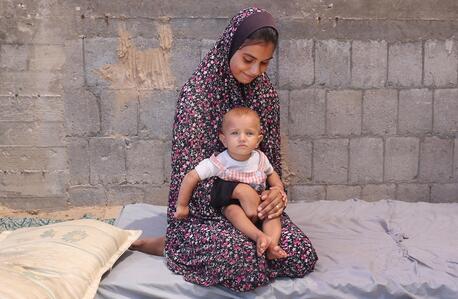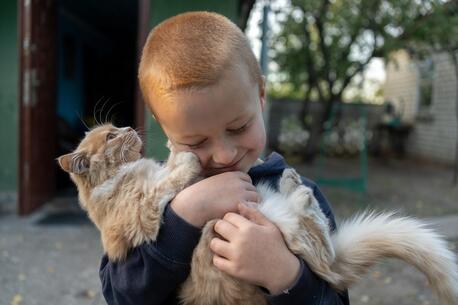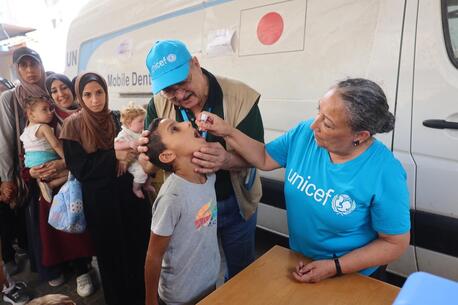
Polio Vaccines Reach Children in Gaza Strip
UNICEF is working with partners to administer polio vaccines in the Gaza Strip, protecting children from the lifelong crippling disease. Limited humanitarian pauses are enabling the campaign's success.
Stopping the spread and saving children's lives
A large-scale campaign to vaccinate 640,000 children under the age of 10 is underway in the Gaza Strip, where the highly contagious poliovirus has reemerged after 25 years. Vaccination efforts are being run jointly by UNICEF, the Ministry of Health, the World Health Organization and UNRWA, the UN's main agency assisting Palestinian refugees.
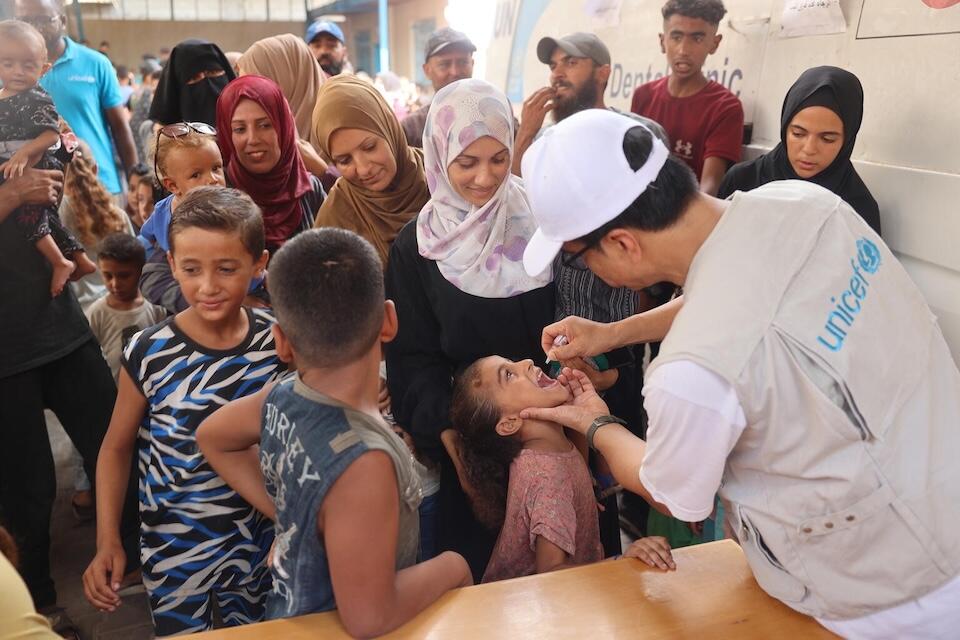
Watch the video:
Overcrowding and inadequate sanitation and hygiene pose a severe health risk to children in Gaza
Typically, polio vaccinators go from house to house to ensure every child in every family is vaccinated. But around 9 out of 10 people in the Gaza Strip have been forced out of their homes after nearly a year of bombardment.
Displaced families are living in close quarters in temporary camps, without adequate access to safe water, sanitation and hygiene facilities, nutrition and medical care — optimal conditions for deadly disease outbreaks.
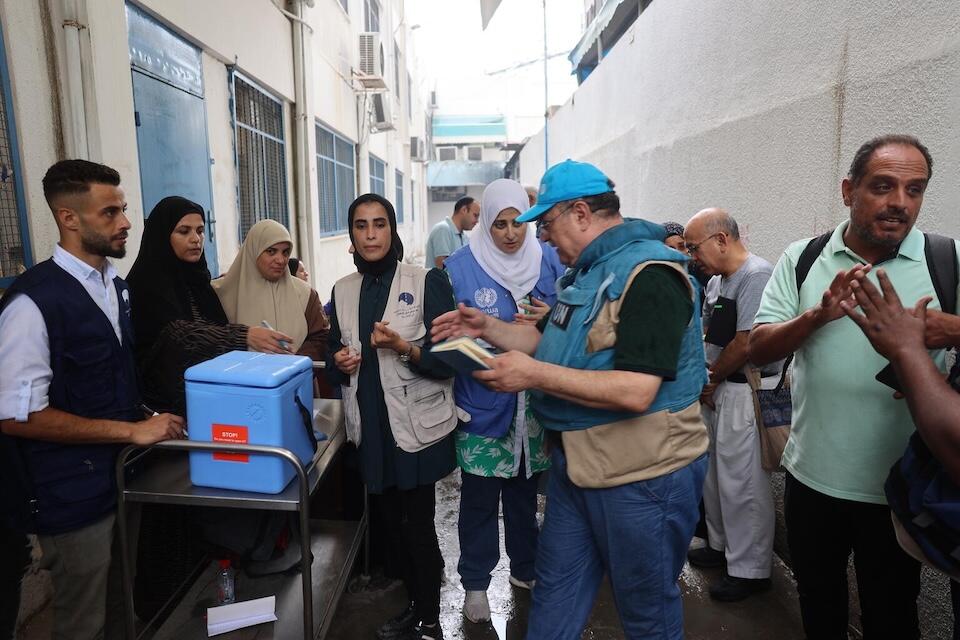
By Day 2 of the campaign, 1 in 4 children targeted had received their polio vaccine
More than 85,000 children were vaccinated against polio in the Gaza Strip on Sept. 1, 2024, the first day of the two-round campaign. Teams are operating daily from 6 a.m. to 2 p.m., with mobile units extending reach across the area.
Around 74,000 children received a vaccination on Day 2, bringing the total to 161,000, meaning that 1 in 4 children targeted to receive the vaccine are now vaccinated.
1.6 million polio vaccine doses delivered to the Gaza Strip
The delivery of 1.2 million doses of polio vaccine type 2 (nOPV) to the Gaza Strip was announced on Aug. 25, along with cold storage equipment needed to maintain the vaccines' temperature.
A second shipment arrived on Sept. 3, bringing the total number of vaccines delivered to 1.6 million for the campaign.
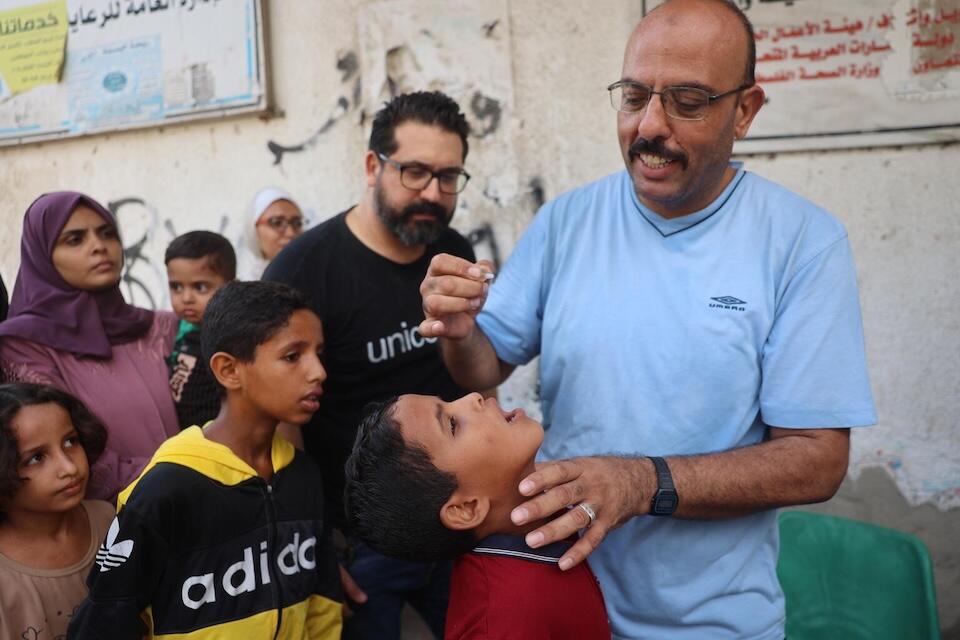
Every child in every household must be vaccinated to eliminate polio
Once the leading cause of paralysis among children worldwide, polio is very close to being eradicated, but is now emerging in countries that have been polio-free for decades. To eliminate polio completely, every child in every household must be vaccinated.
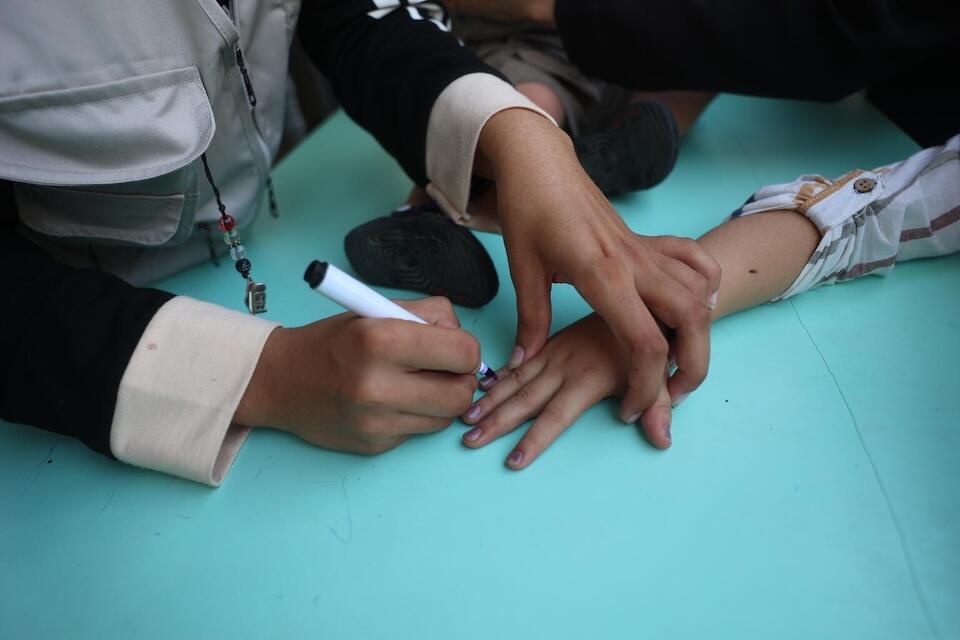
There is no cure for polio, only vaccines to prevent it
Polio mainly affects children under the age of 5, but anyone of any age who is unvaccinated can contract the disease.
At least 95 percent vaccination coverage during each round of the campaign is needed to prevent the spread of polio and reduce the risk of its re-emergence, given the severely disrupted health, water and sanitation systems in the Gaza Strip.
Every child has the right to a safe and healthy childhood, wherever they are. Your contribution will help UNICEF reach more children in need. Please donate today.
HOW TO HELP
There are many ways to make a difference
War, famine, poverty, natural disasters — threats to the world's children keep coming. But UNICEF won't stop working to keep children healthy and safe.
UNICEF works in over 190 countries and territories — more places than any other children's organization. UNICEF has the world's largest humanitarian warehouse and, when disaster strikes, can get supplies almost anywhere within 72 hours. Constantly innovating, always advocating for a better world for children, UNICEF works to ensure that every child can grow up healthy, educated, protected and respected.
Would you like to help give all children the opportunity to reach their full potential? There are many ways to get involved.




